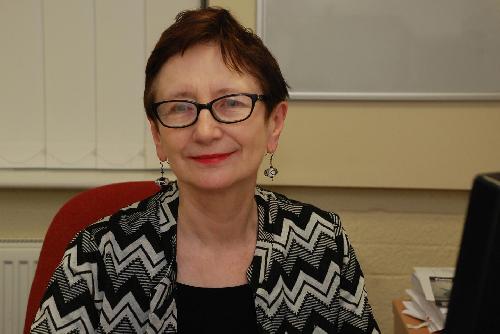When family difficulties mean that children are at risk of abuse or neglect and face being taken into care or becoming candidates for adoption, how can their fathers be brought back into the equation? Instead of being marginalised, might they be part of a solution? A conference at the University of Huddersfield enabled social workers involved in child protection to hear and discuss the very latest research in the field of fatherhood.
The event was entitled Engaging Dads in Assessment and among the key speakers was Brid Featherstone, internationally acknowledged for expertise in the areas of gender, fathers and child protection and now Professor of Social Work at the University's School of Human and Health Sciences. Her latest article is What about my dad? Black fathers and the child protection system, in the journal Critical and Radical Social Work.
Professor Featherstone's talk included case studies of three men from ethnic minorities who successfully fought to be given care of their children. She laid stress on the correlation between poverty and family difficulties and said that she was worried about the present emphasis on adoption. "We might be on dangerous ethical and moral ground about how we treat the poorest people in society," she said.
 Professor Brid Featherstone Credit: University of Huddersfield
Professor Brid Featherstone Credit: University of Huddersfield
The old model of the distant, uninvolved father as breadwinner had gone, said Professor Featherstone, but no new model had yet been established.
"A good father today expects to be emotionally engaged with his children," she added. When fathers -- who might have experienced years of disrespect and feelings of powerlessness -- encountered the social services they wanted to be treated with fairness and to have their voices heard, according to Professor Featherstone, who said that fathers from poorer backgrounds are bitterly aware of unfairness and double standards, having been accustomed to them all their lives.
She analysed issues such as "double suffering", whereby men who had been abused themselves sometimes became abusers. "We can't condone their bad behaviour, but equally we can't write them off. We have to try and find ways of engaging them respectfully."
Engaging Dads
The Engaging Dads conference drew a large attendance of social workers plus other professionals within social care and youth services, including many of whom are involved in early intervention services. It was jointly organised by the University's School of Human and Health Sciences and Kirklees Council. Delegates were welcomed by Toni Traynor, who is the Council's Head of Early Intervention, Targeted Support and Disabled Children's Services.
"Quite often, dads are silent through the assessment process and we need to engage them," she said. "I hope that you will use the knowledge gained today to improve your practice in serious case review."
There was also an introduction from Gill Kirkman, who is the University's Subject Leader in Social Work. "This event is wonderful collaboration between our Division of Social Work and Kirklees Council and I hope it will be a fantastic opportunity to engage in recent research and look at the application of that in practice," she said.
Speakers included Dr Gavin Swann, who described a successful experiment in a London borough in engaging fathers. It had led to a "father-friendly culture", he said.
Former Kirklees council social worker Lee Sobo-Allen -- now a university senior lecturer -- described a study of social workers' expectations and motivations for considering non-resident fathers as potential alternative carers for their children.
In addition to talks, there was also a screening of a DVD -- to which Professor Featherstone contributed -- produced by the organisation Fathers Matter, which has carried out extensive research into experiences of fathers whose children are involved with Children's Services.
Delegates also attended a sequence of workshops conducted by Dr Swann and Mr Sobo-Allen, revolving around their research, plus a session entitled Bringing Our Own Meanings to Fatherhood, with Gill Kirkman and Suzanne Triggs.
source: University of Huddersfield